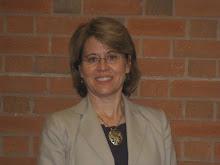Sometime ago, I was leading a district clergy workshop on theology and preaching. At one point I mentioned that we should keep our United Methodist doctrines and Wesleyan theology in mind when we step into the pulpit. One pastor challenged me, "Why Wesley?"
Why, indeed, should we care about John Wesley's teachings in 2010? After all, our world differs dramatically from the one in which Wesley lived and preached. Wesley knew little of the industrial revolution and nothing of the technological, digital revolution so central to our lives today. Capitalism was on the rise, but Wesley never experienced the middle class and consumerism as we know them. And, though Wesley lived at the onset of the Enlightenment, he could never have predicted the ways in which reason, science, and factual proof would come to dominate our lives. There can be little doubt that our world today differs dramatically from Wesley's.
So, then, why Wesley? First, we have to keep in mind that we have chosen to be part of the Wesleyan/Methodist tradition. Those who are ordained stand before their annual conference as the resident bishop asks them the historic Wesley questions. The Bishop inquires of those to be ordained Elders, "Have you studied the doctrines of The United Methodist Church? After full examination, do you believe that our doctrines are in harmony with the Holy Scriptures? Will you preach and maintain them?" (2008 BOD Para. 336) Inevitably, the answer is yes. [I can't help but note that candidates for Full Connection as Deacons are not asked the third question, thereby suggesting they might not have to preach and maintain them (2008 BOD Para. 330 (5) d).]
I haven't polled the church's bishops, but I suspect that for many of them those questions are more than a ritual. They are a source of our identity, communal values, and our life together as an expression of the Body of Christ in the world. They help us understand who we are as United Methodists.
But I'm also the first to acknowledge that in our context, where the vestiges of the modern "self" -- with its emphasis on the individual and individual choice -- continue to have a firm grip upon us, the answer "because the rules say so," isn't a very compelling one.
A more compelling response to "Why Wesley?" (and one that applies to clergy and laity alike) is scripturally based: "You will know them by their fruits" (Matt 7:16). In other words, Wesley's Methodist way of living out the gospel caught fire in the British Isles, spread across the Atlantic, and then around the globe. People are still drawn to the Methodist way. Even if we are declining in the West, Methodism continues to change lives in the Southern hemisphere. There was and is something about Wesley's way of interpreting and expressing the gospel message and the Christian life that rings true to people. Today, we can still count some 8 million United Methodists in the U.S. and 11.5 million around the globe. If we added in the other denominations with roots in the Wesleyan/Methodist tradition, these numbers would be even larger.
There is something about the Wesleyan way of living the gospel that really makes sense of our lives and our lives in Christ. So I would suggest that, perhaps, it’s not a matter of the Methodist way being out of touch with today’s world; rather, it’s that we have forgotten the Methodist way of being disciples or haven’t given it enough attention and we need to reclaim those roots.
This blog is dedicated to exploring the Wesleyan/Methodist way of living the gospel. I hope you'll join me on this journey "In Wesley's Footsteps."
Wednesday, February 3, 2010
Subscribe to:
Post Comments (Atom)

I find it helpful to consider Wesley's witness occuring within the ongoing living context of the historical church.
ReplyDeleteI can really sense the frustration you feel and I sympathize. I think the large denominations have all experienced a true loss of self identity, along with their numbers.
Wesley's example is the narrow way and few keep the path. St. John Climacus' Ladder of Divine Ascent icon is perfect example.
People forget Martin Luther wasn't trying to create his own church either. But that's a topic for another day.